Bursary Reports 2012
ELECTIVE REPORT SRI LANKA & NEPAL
LAURA EASTON
I spent my first three weeks of elective on the male general medical ward in the large tertiary government run hospital in Kandy, Sri Lanka’s second largest city. The ward had over 50 beds and was run by a team of 7 doctors, with consultant-led ward-rounds every morning. Also on the ward were 16 final year Sri Lankan medical students.
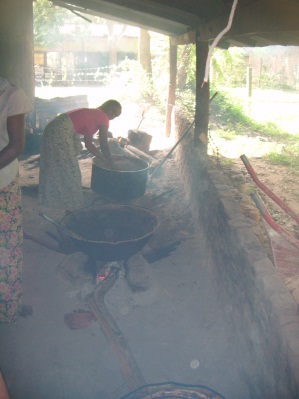
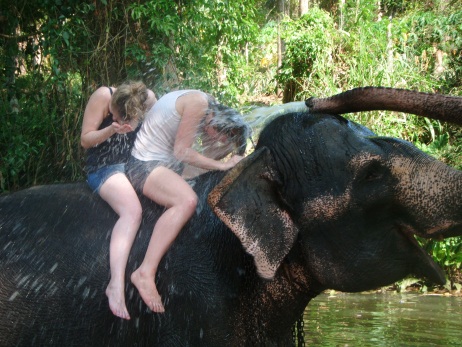
My placement objectives were to develop an understanding of the Sri Lankan attitudes towards medicine from the perspectives of both medical staff and their patients, and to therefore develop an understanding of the practical consequences, and to experience the delivery of healthcare in a financially challenged setting.
I was enthusiastically welcomed by the medical team and local students, and I spent the majority of my time shadowing doctors on the ward rounds, from which I became familiar with tropical diseases such as cholera and malaria. There were interesting cases such as elephantitis and I was able to regularly examine patients.
There were significant differences between UK and Sri Lankan medical provision - the ward and equipment were much more basic, there was no isolation for patients with infectious diseases, and ANTT did not really feature. As patients presented much later than they would do in the UK, this automatically made the doctors jobs more difficult as the patients were more acutely unwell, whereas in the UK they would have been treated well before that stage. Despite this, the standard of medical care provided for patients was relatively high, and I think this was because of the effective team work between all levels of doctors and nurses. The medical students also had far greater freedom than here in the UK and often seemed to take over the ward!
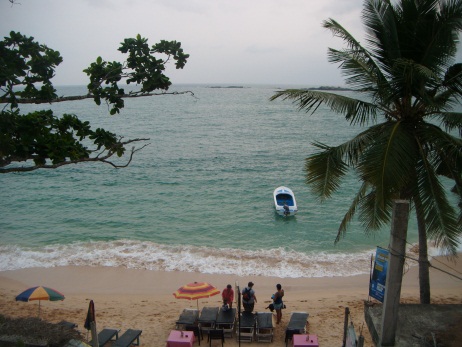
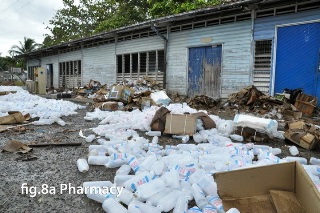
I spent my last week in Sri Lanka in a remote village called Habarana where I experienced traditional Aruveydic medicine which involves practices such as herbal drinks and ointments, and various massage techniques, often involving spices as a form of healing over conventional Western medicine. The hospital consisted of an inpatient ward with roughly 5 or 6 patients, and also had daily clinics where anyone could drop in and see the doctor who lived on site. It was very interesting to see a form of medicine I had no previous experience of, and mixing remedies in huge old cauldrons was certainly a new experience!
Outside of placement I was able to enjoy the idyllic beaches of Sri Lanka, buy tea fresh from the plantations, and take part in the pilgrimage to Adam’s Peak which involved an overnight mountain ascent. I then spent my last month of elective based in the government-run hospital of Western Regional, in Pokhara, Nepal. The Obstetrics and Gynaecology department is the second largest in Nepal, and sees over 30 births as standard each day.
My role was to observe and help out on ward rounds, and to assist in the delivery room. The standard of care was very basic, often with 8 women in the first stages of labour all in one room with no curtains between them. When the baby was crowning the women had to walk down a corridor into the delivery room and up some steps onto the delivery bed. The delivery room had 4 beds, again with no curtains between them, and the room was incredibly basic.During labour all women received oxytocin to speed the process up, and during my time there I saw no-one receive any pain relief, even during episiotomies. Caesarean sections were scheduled for Sunday and Wednesday mornings only, although in the event of an emergency a space in the surgery could be given.

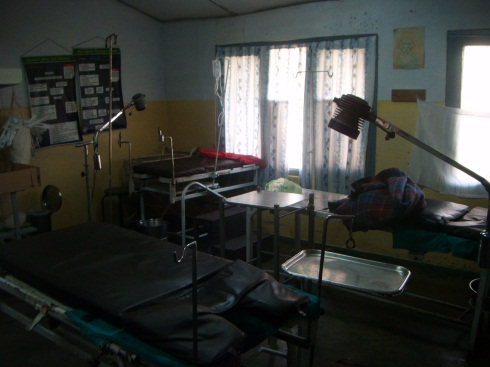
I learnt that only 20% of Nepalese women give birth in hospital, and this statistic is trying to be bettered by a government run programme called ‘Safe Motherhood’ set up in June 2010. The programme encourages Nepalese women to attend antenatal classes, and to give birth in hospital. For doing so, and after attending all the antenatal classes and having given birth, the woman receives 1000 rupees (approximately £8). The consultant told me that this programme has been an initial success, and I was encouraged that such a programme existed.
I spent my final week in Nepal in a remote mountain village called Nalma, where I worked at the local rural health post. The health post was set up by the government and is run by two workers in the village, one a mid wife, and another with limited healthcare experience. The post has a limited supply of drugs including antibiotics, iron supplementations, oral rehydration sachets etc. The post is open every weekday from 10am-3pm, during which time anyone can drop in and be seen. During my time I saw wounds that needed to be dressed, common coughs and colds, gastroenteritis and alcoholism. The post also offered a family planning service and I was able to administer depo vera injections. The post is able to refer patients on to hospitals and is an invaluable first stop for locals who would otherwise not be treated for minor ailments or who would have to walk for hours to get to the nearest hospital.
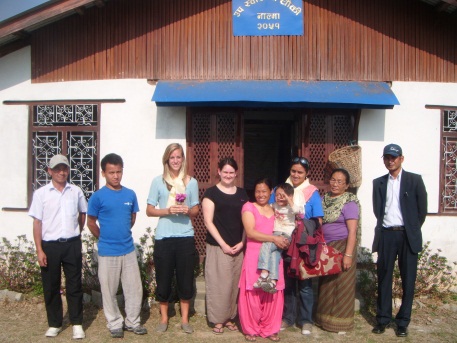
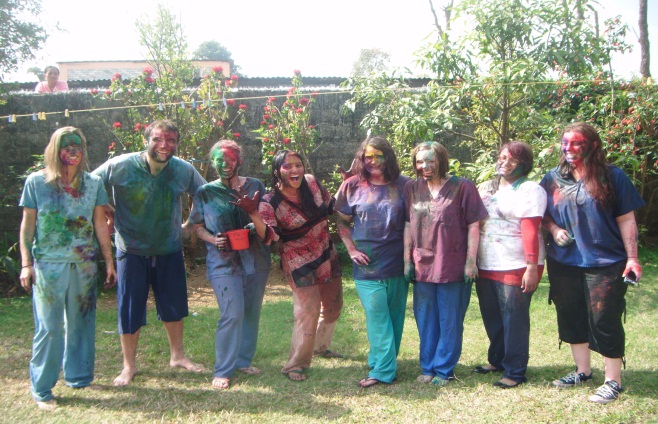
Nepal is an amazing country, and I was lucky enough to experience Holi,the annual festival of colour which saw us being covered in paint by locals, as well as enjoying several treks in the Himalayas, the highlight of which was watching sunrise on the top of Poon Hill after a hard three day ascent!
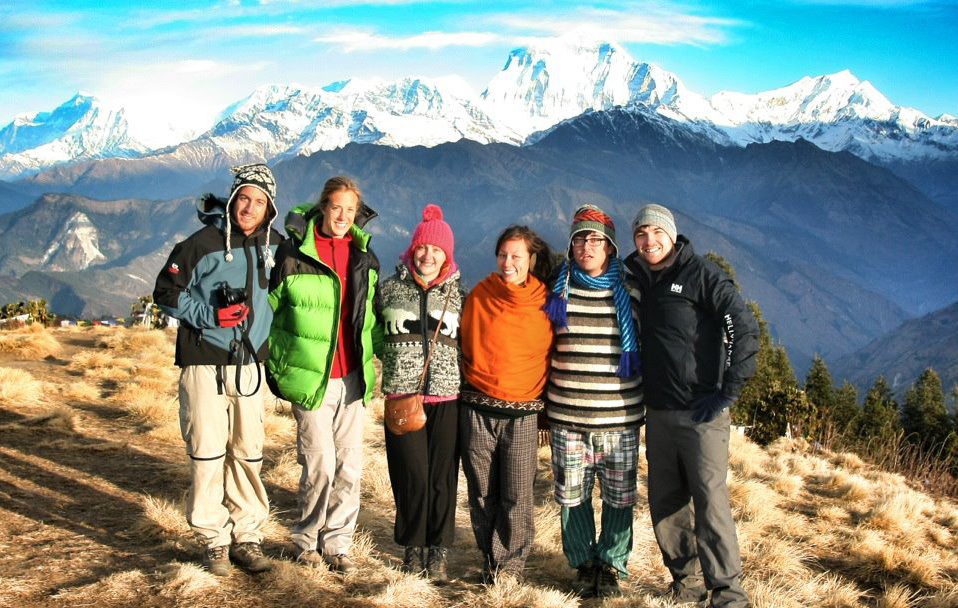
Laura Easton
To the Kidderminster Medical Society
From Lara Reilly
I am currently on the 4-year graduate entry medicine course at the University of Birmingham. I have lived in various places around the West Midlands all my life. I was born in Solihull, grew up in Birmingham and Sandwell, then later moved to Herefordshire and Worcestershire. Following my passion for the sciences at school I studied Biochemistry at the University of Leeds, and graduated with a first class honours degree in July 2010. After spending most of my undergraduate degree contemplating studying medicine, I spent a very happy year working as a Nursing Auxiliary at Hereford County Hospital on their acute stroke unit, which settled my decision.
This past year has been one of the most challenging and enjoyable of my life so far. A whirlwind tour through anatomy, physiology, sociology and all the other aspects of pre-clinical medicine and here I am now nervously awaiting my exam results - I can't believe it has gone so fast!
The transition from learning on a lecture-based course to a mostly self-directed course was very tough, and it is impossible not to miss being spoon-fed at times. However, I am confident that the problem-based learning approach employed at Birmingham will stand us in excellent stead for our future careers.
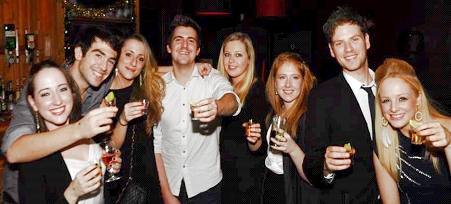
My favourite parts of this year have been those that I spent on placement at my GP surgery in Aldridge, Walsall. It was a real pleasure to spend time talking to patients and taking my first steps to becoming a medical professional.
As for the future, I have little idea where I would like to specialise, but I am looking forward to working in various areas throughout my clinical years. My first placement is at Heartlands Hospital where I will be based on the Elderly Care Assessment Unit, and I can’t wait to start.
I would like to say thank you very much and express my sincere gratitude for being selected as the recipient of your bursary during this academic year. It has been invaluable in relieving the financial pressure of studying a second degree and has allowed me to dedicate more time to studying than would otherwise have been possible.
Lara Reilly
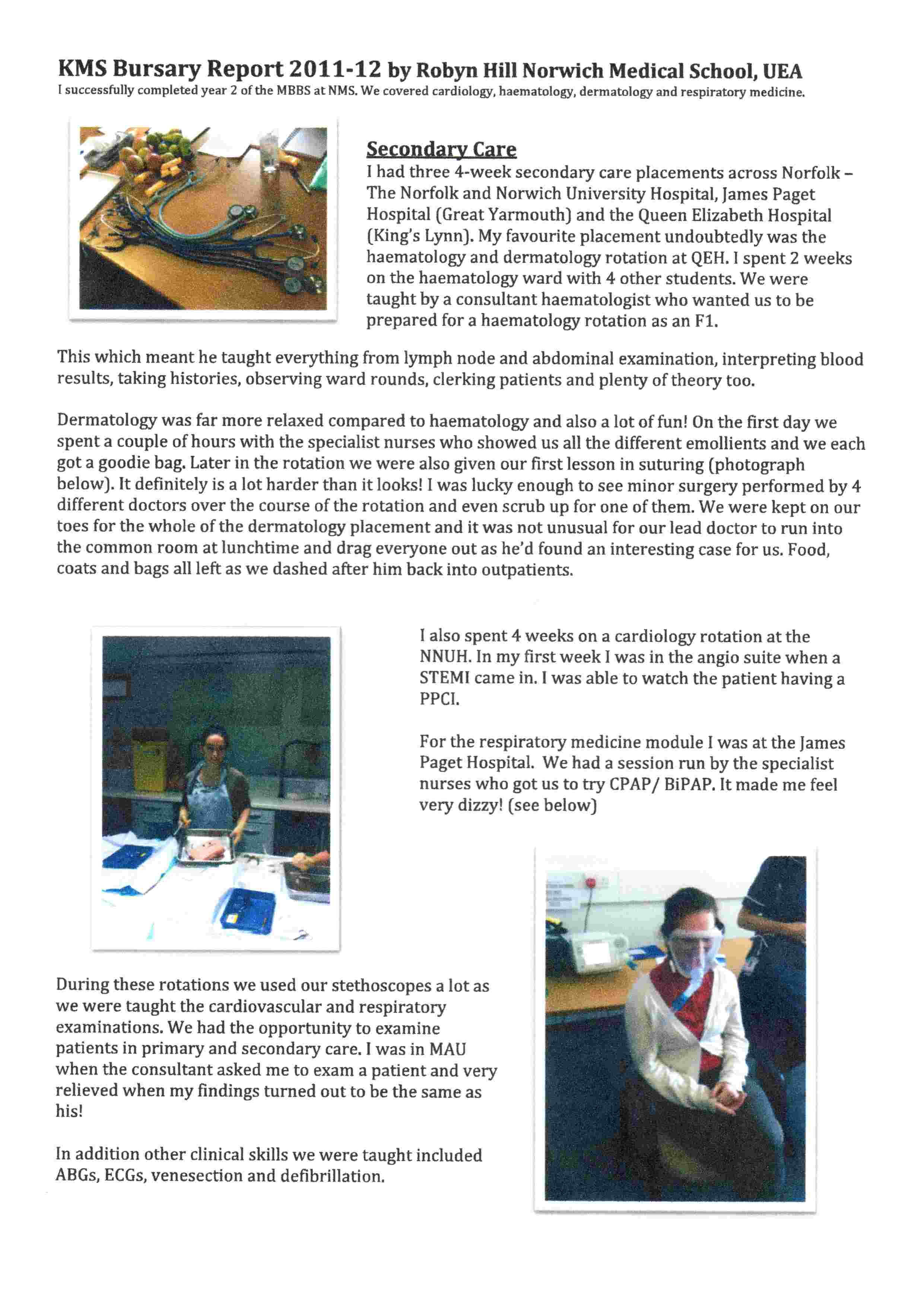
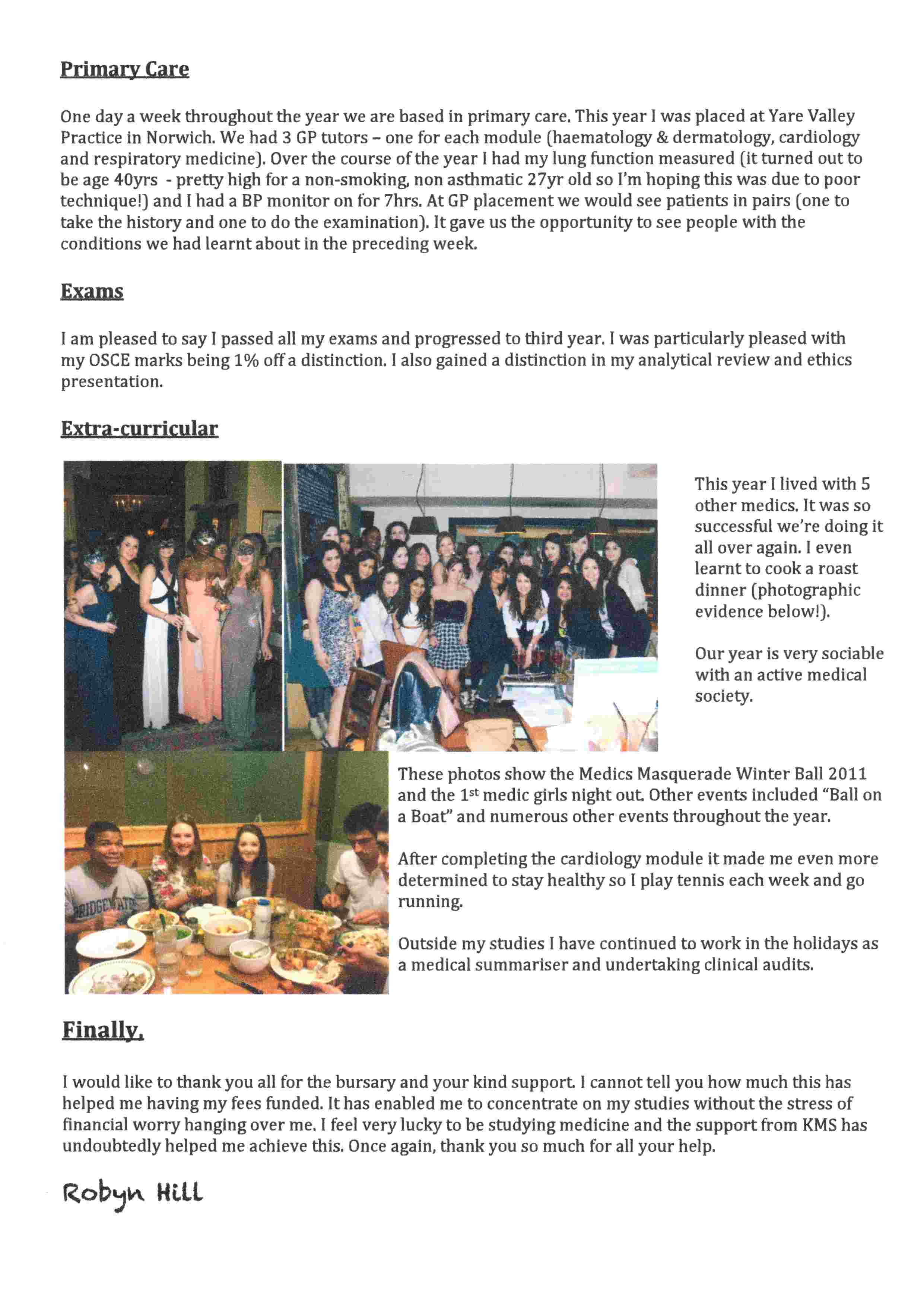
Robyn Hill
Vicky la Borde
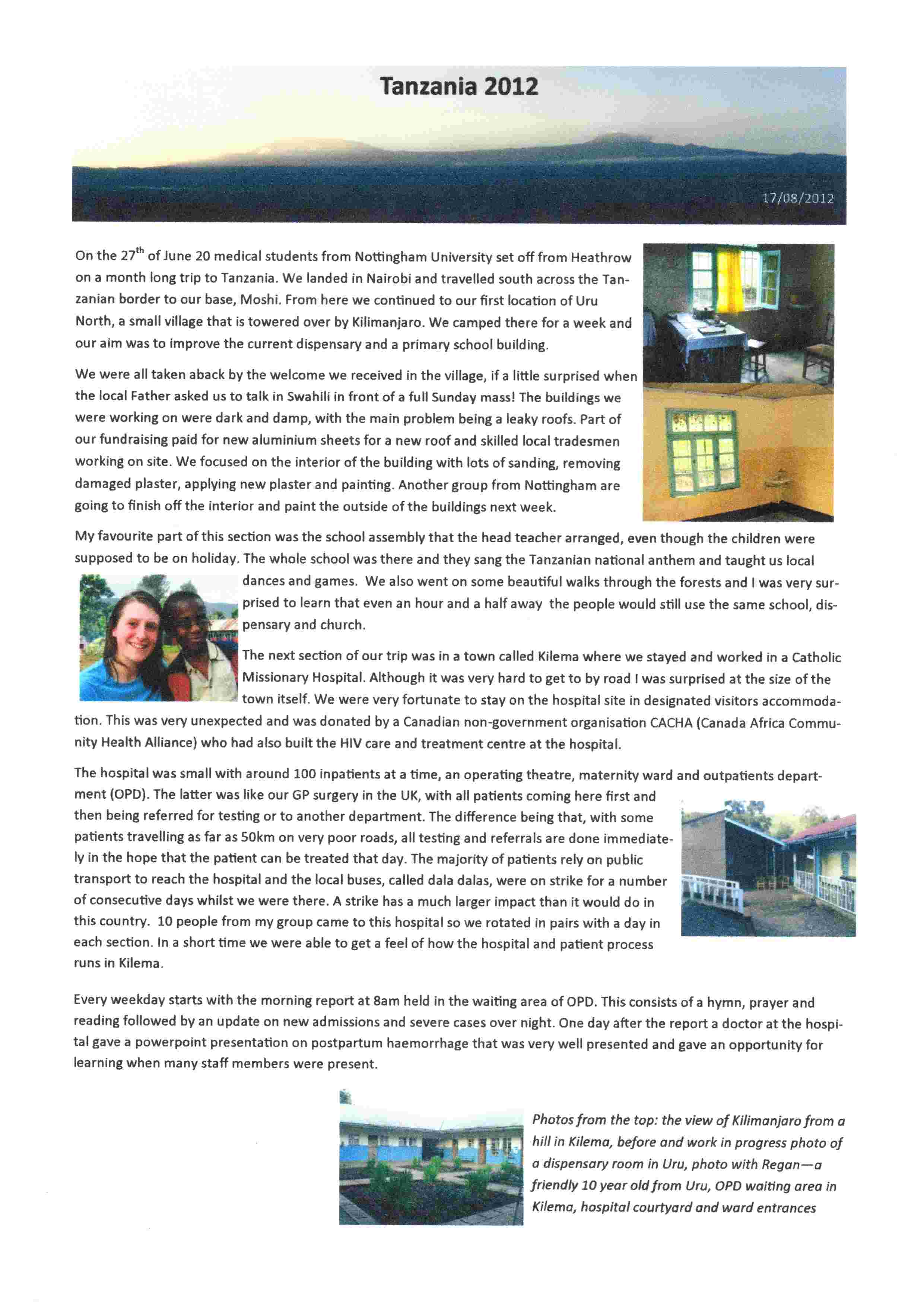
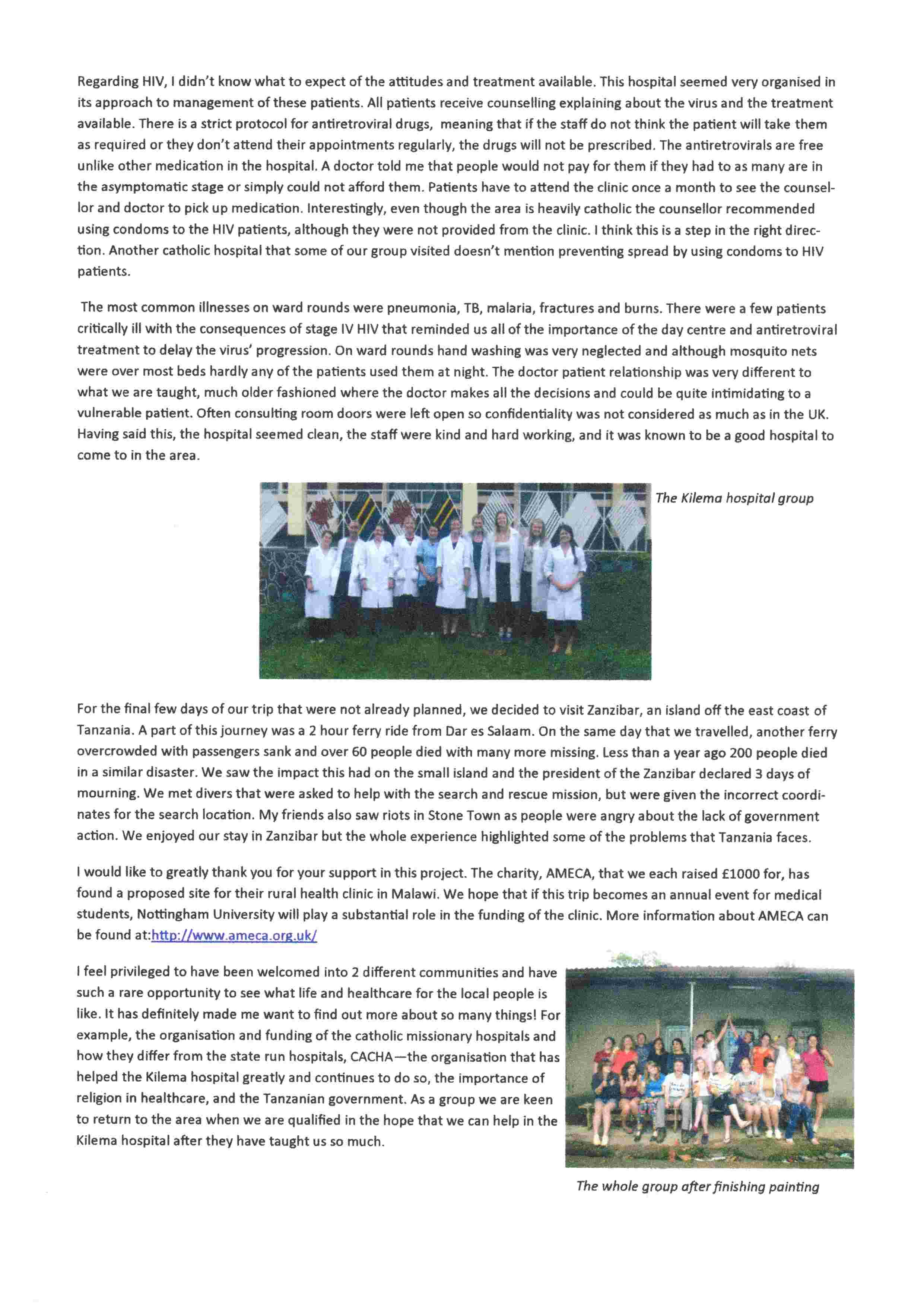
Vicky La-Borde
Click HERE to go back to the Bursary Report Index